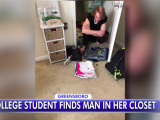
Liam Neeson Had the Sort of ‘Impulse’ That Literally Kills Black People
February 5, 2019This article originally appeared on VICE Canada.
During an appearance on today’s Good Morning America, 66-year-old actor Liam Neeson insisted that he wasn’t racist for wanting to kill a random black man over the rape of a friend.
“This was 40 years ago. I had a primal urge. I was trying to show honor for a friend I dearly loved in a medieval fashion.”
This response came a day after a previous press junket for his (umpteenth) revenge film Cold Pursuit. In it, the actor revealed that he once roamed predominantly black streets with an “impulse” to kill a “black bastard” the moment he discovered the race of his friend’s rapist. He later credited “power-walking” two hours a day for getting rid of this feeling.
In a world of “I’m not racist” defenses, there aren’t too many stories that better articulate how the Neesons of the world can be blind to their own ingrained racism. It’s a layer upon layer ridiculous scrubbed in some “really?” soaked in some “bullshit,” served with a side of, “get the fuck outta here.” Most black folks understand this moment, when “overt racism” tells “implicit bias” to hold its beer, and goes off to the surprise of the person in question as they explain themselves on some nationally syndicated TV show.
Liam Neeson was understandably angered over a friend who was raped. We get that. Many know the strain of helplessness that fuels rage; the need to right a wrong. But one has to consider the term “black bastard” first and foremost. Before this moment, I wasn’t aware that Neeson harbored racist ideas. And while I can’t speak for Liam’s state of mind, it’s a habit of many white people walk through life absolutely sure that they hold zero biases against black folks. But given the moment—a proper source of personalized discomfort, and you find a taught bigotry that's unconscious. Rather than target any man, he targets all black men as a collective, as I think most so-called allies would, and it’s in no way an impulse.
There’s been an age-old practice of holding the actions of some black people as indicative of the actions of all black people. It’s aided by our portrayals throughout history as a bad guy collective.
In a 2018 study titled Research in Race and Ethnic Relations, researchers used three different newspapers covering the killing of teenager Michael Brown—The Los Angeles Times, New York Times, and The Washington Post. In each, they recorded the several instances officer Darren Wilson’s description of Brown (large, with uncontrollable aggression) in neglect of Wilson’s comparable size. And nothing about that is new.
We’re talking about a historical power play that goes back to stories of slaves looking to “rape” southern white woman in bushes (see 1975’s Birth of a Nation). It still had legs to convince a nation in 1989, including president Donald Trump, that five non-white teens were guilty of raping a white female jogger—better known as The Central Park Five. It was still enough to convince a bitch of a man named George Zimmerman to kill a teenager named Trayvon Martin (who would have turned 24 today). And it’s the same stuff getting every cop to “impulsively” pull the trigger on every unarmed black person deemed a threat.
Much like black people suffer from inferiority complexes when exposed these racial narratives, the same applies to the Neesons of the world who don’t commit to our experiences enough to see black folks as different during harsh times. He failed his test when that lack of experience rushed to the forefront. When it became too hard to view us differently from the man who raped his friend. When faced with a test that challenges personal comfort (a seat on the bus, a black man on the sidewalk, an exposed purse), black individuality ceases to exist. That isn’t something that can be solved with damn power walking. It takes years of getting to know black lives beyond occasional conversations. Beyond your favorite actors. Beyond this article written by some black dude.
Avoid your Neeson moment, and make the black lives in your life less abstract.
Sign up for our newsletter to get the best of VICE delivered to your inbox daily.
Follow Noel Ransome on Twitter.


